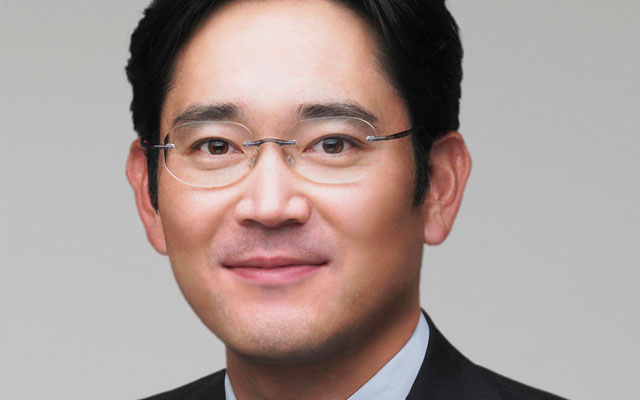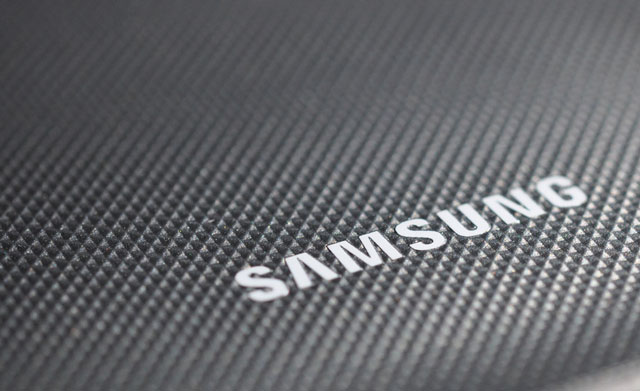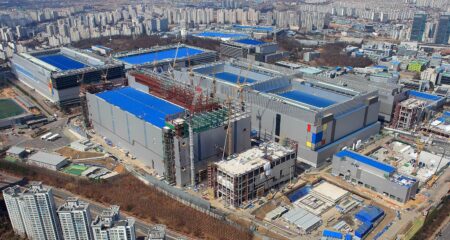
South Korea’s special prosecutor accused Jay Y Lee and other Samsung Group executives of conspiring to create fake documents to mask millions of dollars in bribes funnelled to a confidante of the nation’s president.
Lee, the de facto head of Samsung, is alleged to have committed perjury when he said he didn’t know his company had paid money to entities controlled by Choi Soon-sil, and that he wasn’t asked by President Park Geun-hye to provide financial support.
The accusations were released on Monday by Park Young-soo, the prosecutor spearheading an investigation that’s reached the highest levels of business and government.
The prosecutor has indicted 30 people in an investigation into corruption surrounding the president, in a probe that’s led to her impeachment and the detention of Lee, the country’s most prominent business leader.
It’s spurred millions to take to the streets in protest over cosy ties between the government and the family-run chaebol that control much of the country’s corporate landscape. Lee and Samsung have denied wrongdoing, a position the company reiterated on Monday.
“The target of the investigation has been the collusion between government and economy, and how state power was abused for a private person’s profits,” special prosecutor Park Young-soo told reporters, calling business-political collusion South Korea’s “chronic corruption”.
Putting the heir to a US$238bn empire behind bars would be the biggest accomplishment yet for the prosecutor, whose career includes arresting two other chaebol bosses.
In its report on Monday, the special prosecutor’s team accused Lee and four other executives of conspiring to pay Choi a bribe of 7,8bn won ($6,7m) for purchasing and taking care of a horse for her daughter’s training in Germany, between September 2015 and February 2016.
“We disagree with the special prosecutor’s findings,” Samsung said in an e-mailed statement. “Samsung has not paid bribes nor made improper requests seeking favours. Future court proceedings will reveal the truth.”
They allegedly worked together to make it seem the money was used to support the overseas training of a Samsung-run equestrian squad that didn’t exist, the prosecutor said. And the executives created a fake contract to pretend that money promised to Choi would be paid to a paper company that Samsung Electronics and Choi together created to receive the bribe, the prosecuting team said. The smartphone maker was a victim of the embezzlement, the prosecutor said.
Employees responsible for accounting at Samsung affiliates worked with Lee and two other indicted executives and took part in embezzling 22bn won from the companies and paying it to Choi’s entities, the prosecutor said.
“What the special prosecutor is saying is, the reality in Korea is that the authority creates the scenario and then the chaebol, which at first is a victim, later ends up a conspirator,” said Chung Sun-sup, who runs corporate researcher Chaebul.com. “If we can’t change the political authority, I think there’s a need to change the entire system, and by that I think the results of the investigation were a step forward.”
Jay Y Lee has been in detention since his arrest last month, with his predicament casting uncertainty over his succession.
The conglomerate’s transition to a younger leader after patriarch Lee Kun-hee’s hospitalisation in 2014 was already marred by last year’s botched debut of the Galaxy Note7, a smartphone pulled from shelves because of a tendency to burst into flame.
It also hampers the group’s ability to make major decisions, from acquisitions to management changes.
The next test for Samsung Electronics without Lee will be the debut of the Galaxy S8, its flagship smartphone model, due later this month.

Shares of Samsung rose 1,3% in late Seoul trade.
The younger Lee has been indicted on five charges, including bribery, embezzlement, hiding assets overseas, perjury and hiding criminal profits. He is accused of directing money to entities controlled by Choi in return for government support of a 2015 merger that cemented his control of the group.
Although a typical trial and verdict could take up to 18 months, the special-prosecutor law recommends resolving the case much sooner.
The investigation has already spurred changes within Samsung, the electronics to shipping conglomerate that rakes in annual revenue equivalent to about a fifth of the country’s GDP.
Samsung Group said it would disband its corporate strategy office, a high-level decision-making unit for the conglomerate that’s been linked to the corruption investigation. Vice chairman Choi Gee-sung, who was indicted alongside Lee, and other executives at the strategy office are stepping down, with affiliates to be managed by their respective boards and CEOs instead.
The constitutional court is expected to rule on the validity of Park Geun-hye’s impeachment as soon as this month. If the court upholds parliament’s 9 December decision, she will lose her presidential immunity to indictment and a special election to replace her will take place within 60 days. Park Geun-hye and Choi have both denied wrongdoing.
The prosecutor accused President Park of colluding with Choi Soon-sil to get bribes from Samsung and Lee in return for business favours. Park is also accused of pressuring a bank to promote an employee and of colluding with former aides and the culture minister to block artists critical of the administration from getting state support. — (c) 2017 Bloomberg LP




